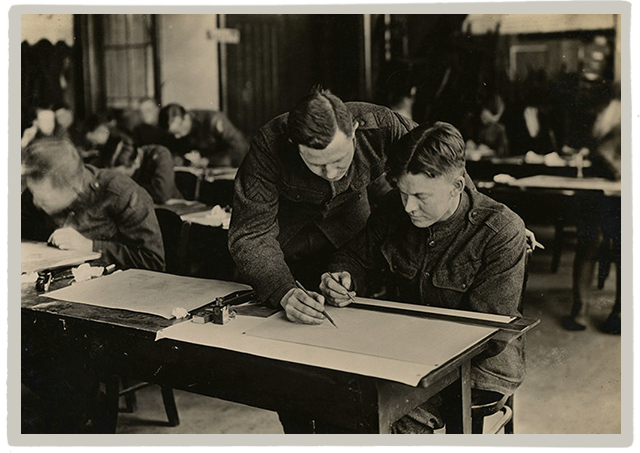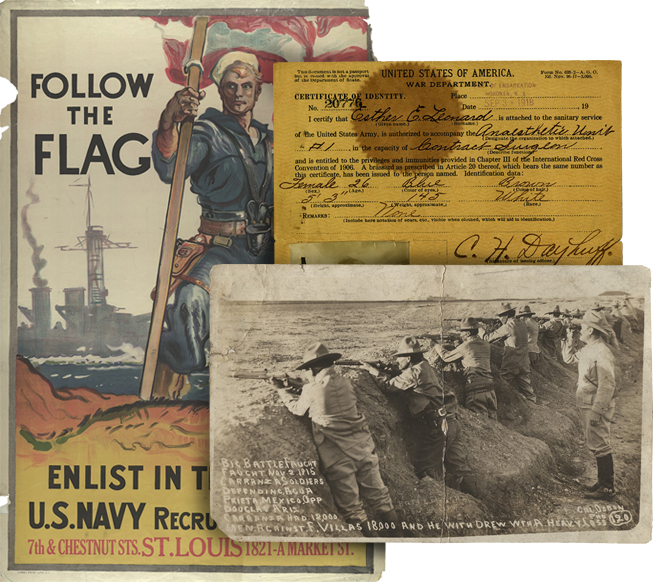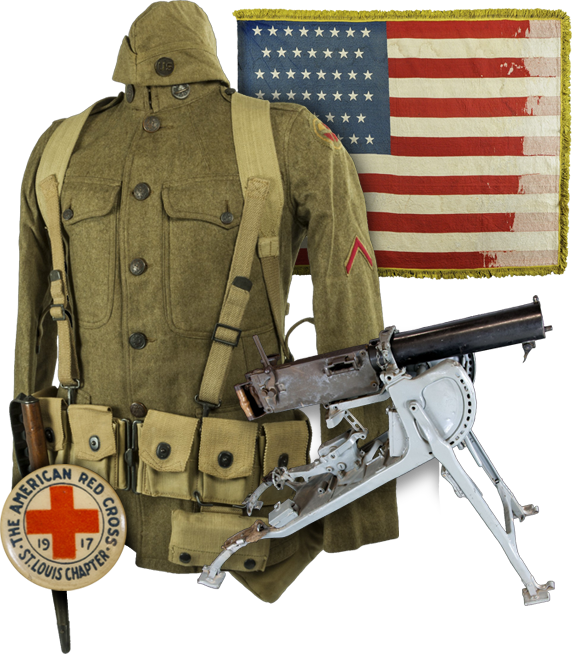Heinrich Altekoester letter to Bernard Rustemeyer - January 23, 1927

Transcript
Duisburg - Ruhrort January 23, 1927 Dear Bernard, I received your letter of August 23, 1926. We were happy to hear from you. I have been expecting to receive your letter at any time. I delayed a bit with the last one because I will probably soon move out of Ruhrort. Right now I am in negotiation with the city. The city wants to buy my garden in Duisburg-Heiderich to enlarge a city park. I have already been in negotiation for a year and a quarter. But the city has bought the land, then I will move again to the Cologne area. I always like it best there. The people there are witty. Cunning befits them. One is always laughing there. It is the purest paradise, a very mild climate, and the orchards there are magnificent. Siberian cold does not prevail there as it does on the Har. The postal system in America seems to be better than ours here in Germany. I have always answered all your letters immediately. I also wrote to Joseph as soon as it was suggested, but it seems that the letter never arrived. In this letter I wanted to borrow 150 dollars from you. Since our money was worthless, that money could buy a villa with a large garden, which would cost 50,000 Mk today. I would have repaid the money after one year with good profit. Two years ago I was able to sell one of my properties in Stakrode (2 morgen) for 50,000 Mk. It was too little, to be sure, but I had to do it. The Gutehoffnung Steel Works in Stakrode would have liked to buy the entire 8 morgen from me. They want to give me 50,000 Mk for these 8 morgen, which today are worth 300,000 Mk to our brothers. But, I can control myself. The Jute Heinrich Altekoester appeals so think-fistedly to my own stupidity. I hope to get in tune with the city soon, and then I will soon attain my goal. When I did not receive an answer to my last letter, I thought you may have taken my joke about the farm in the wrong way. Yes, dear Bernard, as I wrote that letter about the farm I laughed until I cried. My wife protested louder than the old Babel in the parliament. She said "You old goose! You clown! You're going to bring poor Bernard down with your answering nonsense in this predicament, that is so schlaupsnuecke." I answered her, "No problem! Bernard ought to buy me a farm over there, and the the matter is settled." Yes, dear Bernard, I've always said that there has to be fun, even if it is with the wife in bed. Today the schlaupsnueke are gradually appearing again. The harvest here has turned out very well. Only the late potatoes were bad. Here in Ruhrort they cost 7 M per hundredweight. Germany caters more and more to the farmer. Wilderness areas, such as the Buenburger heath, are being reclaimed so as accommodate the unemployed. The too, a giant network of canals is being built in Germany, throughout which one will be able to go though all of Germany by boat. I have enclosed some newspaper clippings, many of which will be of interest to you. Germany has again maintained itself rather well. The British miners' strike helped us out too. None of our miners are unemployed. And so we have most of our old customers back, and in industry as well. As the well-known adage goes, God will forsake no German. And the plain honest German in not too lazy to work. Massive injustices were inflicted on Germany by the war. Germany has been smeared and portrayed as Huns and Barbarians. All of that is a stinking pack of lies. The French were responsible for that. The German diplomats absolutely denied it. At that time it was a mystery to me that we had the whole world as an enemy. But today it is evident how it all came about. The German people, and Wilhelm himself, did not want war. Even if Wilhelm did a lot of talking and saber-rattling, he worked incessantly for peace from the time of Sarajevo until the outbreak of the war. Ever since Sarajevo, Russia has been sending its troops to our borders while Wilhelm tried to keep the peace. The consequence of that was that Wilhelm hesitated too long in mobilizing and the Russians set entire East Prussia on fire, until Hindenburg threw them out and drove them into the Mazurian Lakes. The poor people were to be pitied. When the Russians marched into East Prussia, they marked the streets with pennants so they would not go to the lake. When the Russians had passed, the forest rangers went into Rominten, where the Kaiser always went to hunt, and flew the pennants from streets that led to the lake. Then as Hindenburg was driving the Russians back and the whole army got driven in to the lake a fearful screaming arose, which failed not to make a deep impression on our own troops. Hindenburg order the band to play so that the cries would be drowned out. Something like that makes the news, but nothing is said about the Russians dragging away unarmed enemies and setting everything ablaze. Poincarre and Iswolski, the Russian ambassador in Paris, started the war. Iswolski shouted, when he had the little fire going, "that is my war." France and Russia prepared for the war for a long time. France gave Russia 46 billion for purposes of war, with which Russia built military roads up to the East Prussian border. They were going to let fly in 1916. The serbian dog was encouraged by the Russian to continually bite the large Donau-Mongolia in the calf and so bring on the war. The proper punishment always follows it basis. The French had to write their 46 billion into the chimney with black chalk. And now France wants to recover damages from America. Now you folks, you just see to it that you get your nickel, and don't you give the French anything. If France wants to make war, it must do it at its own expense and not at the expense of other people. We have been fearfully gagged in the Treaty of Versailles. Clemencau and Wilson did that. Lord George was voted down. The American people defended its honor in that it did not ratify the Treaty of Versailles. To give the French such a treaty is to make the goat the gardener. France not only frustrated the disarmament, but continually arms itself all the more and now commandeers the whole world. Today the realization of that pushes ever onward. "Would that we had the old Germany back." But now, dear Bernard, enough of that. I see from your letter that you, too, are beginning to show signs of age. When I received your photograph, I remarked to my wife "you can see by Bernard's fingers that he hasn't been idle." Yes, dear Bernard, we too are already 60 years old, and then one can no longer "run in front of the mail wagon." Physically I am still very healthy, but my nerves are shot. Now that I have been on pension for three years already, I putter around in the garden. Then I can also sleep at night. I read in your letter that you and your brothers s.z. wanted to help us during our famine, that you did not receive my answer to the earlier letter. I wrote in my letter, verbatim, "I must decline your generous offer to help me, inasmuch as you yourself have children for who you must provide." My sister is well so far. She is a widow. her husband died in 1922. Her only son fell in the war. Both of her daughters are married. One married a teacher, the other married a man who has no means of support. Together they now have the bakery and hold a master journeyman's certificate. Both of them cause my sisters a lot of grief. Franz in Koerbecke has been a widower since 1905. His wife (Klara Dres) died in 1905. He has five children, two boys and three girls. Anton has four children, two boys and 2 girls. The oldest son Nicholas, got the farm. The second is a teacher. Both of the girls are married and live in Lippstadt. They both married farmers with two horses. The grey horse had my luck. You surely remember the well known adage about the stupid farmer and the big potato. My brother Kaspar was accidentally killed in 1896 at the threshing machine. My parents-in-law had 4 children. The oldest, Franz, is a teacher in Warstein. The second is my wife. The third, Joseph, is a baker in Gealsber. The youngest, Elizabeth, married the teacher Brune in Koerbecke, the descendant of the father-in-law. We have 4 children, 2 girls and 2 boys. The oldest, Mia, is 23, the second, Thres, is 20, Paul is 15 and Hendrik 12 years old. We are all well. Only I'm longing for the day when I can be in Cologne again. My brother Joseph has 2 children, 1 boy and 1 girl. At the moment, there is tension between us. Last summer he celebrated silver jubilee, to which we were invited. When I didn't accept the invitation, he felt like his tail had been stepped on. He also took offense in that I congratulated him with a postcard and not with a telegram. I told my wife that I never knew that people who were so reined came from Koerbecke,Yes, my dear Bearnd, I am a bit Huel, as they say at the Har. I understand he had 43 guests -- priests, chaplains, professors, student councilors, etc. I am no big fan of such pomp. On August 21, 1926, we too were married 25 years. We did not celebrate. He wrote me later, " where there's no will, there's no way." My wife answered his letter. Now he would like to come, if only he would be invited. Yes, dear Bernard, that's how it goes when one offends big Wilhelm. Schiller says, 'Noble be the man hinfreich and good. Now , dear Bernard, I will end my writing for today, On all sides our sincere greetings and wishes from us all, but be specially greater by your old comrade, Heinrich Altekoester Chin up, always!







Details
| Title | Heinrich Altekoester letter to Bernard Rustemeyer - January 23, 1927 |
| Creator | Altekoester, Heinrich |
| Source | Altekoester, Heinrich. Letter to Bernard Rustemeyer. 23 January 1927. Rustemeyer Family, Papers, 1884-1953. C4017. The State Historical Society of Missouri, Columbia, Missouri. |
| Description | In this January 23, 1927 letter to his former neighbor Bernard Rustemeyer of Osage County, Heinrich Altekoester of Duisburg - Ruhrort, Germany discusses the war, the events leading up to it, and the reluctance of Kaiser Wilhelm and Germans to enter war. Translation provided by Raymond Backes. |
| Site Accession Number | C4017 |
| Contributing Institution | The State Historical Society of Missouri |
| Copy Request | Transmission or reproduction of items on these pages beyond that allowed by fair use requires the written permission of the State Historical Society of Missouri: 1020 Lowry Street, Columbia, Missouri, 65201-7298. (573) 882-7083. |
| Rights | The text and images contained in this collection are intended for research and educational use only. Duplication of any of these images for commercial use without express written consent is expressly prohibited. |
| Date Original | January 23, 1927 |
| Language | German |



